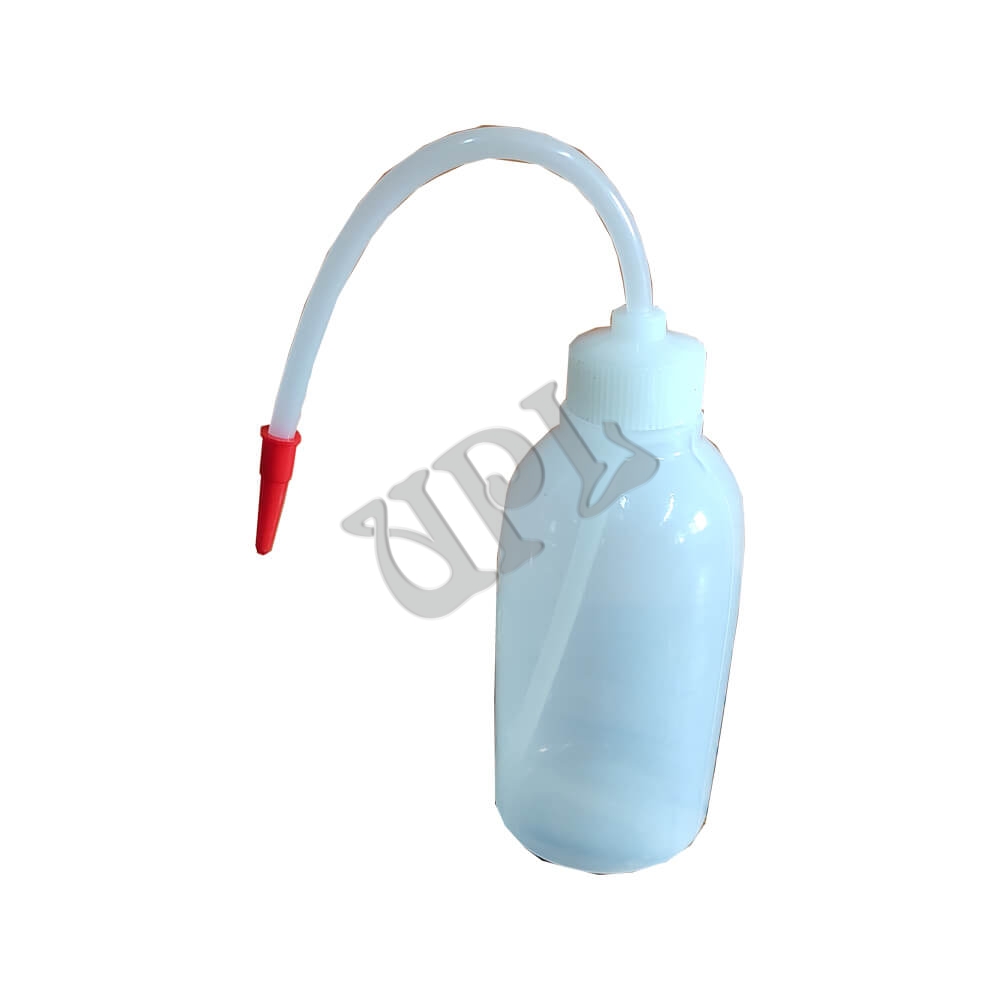
In the world of scientific research and experimentation, small tools and equipment often play a critical role in ensuring accuracy, safety, and efficiency. One such essential tool is the wash bottle—a simple yet indispensable item in laboratory settings. Though it might seem like just another piece of lab equipment, the wash bottle offers a range of practical benefits that can enhance the performance of lab work. Let’s dive into the uses, types, and benefits of wash bottles, exploring why they are crucial in laboratory environments.
What is a Wash Bottle?
A wash bottle is a squeezable plastic container with a nozzle or spout attached at the top. It’s typically filled with various liquids, such as distilled water, solvents, or other laboratory cleaning agents. The nozzle is designed to deliver a controlled, targeted stream of liquid when pressure is applied by squeezing the bottle.
Wash bottles come in different sizes and materials depending on the liquid being used, with plastic (usually polyethylene) being the most common due to its flexibility and resistance to chemical reactions. Some wash bottles are labeled with specific chemicals to prevent contamination, and color-coded bottles are often used in labs for easy identification.
Common Uses of a Wash Bottle
1. Cleaning Labware and Equipment
One of the primary uses of a wash bottle is for cleaning laboratory glassware, such as test tubes, beakers, flasks, and graduated cylinders. The nozzle provides a focused stream of liquid, allowing lab workers to wash away residues or contaminants that could interfere with future experiments. The ability to control the flow of liquid ensures that even delicate or intricate labware can be safely cleaned without damaging fragile surfaces.
2. Rinsing Off Chemicals
In various laboratory processes, chemicals can leave residues that need to be rinsed off without affecting the chemical composition of subsequent reactions. A wash bottle filled with distilled water or an appropriate solvent is an effective way to rinse equipment without introducing impurities. It is particularly important in situations requiring a high degree of precision, such as in analytical chemistry.
3. Diluting Solutions
Some laboratory protocols require careful dilution of concentrated solutions, and a wash bottle can make this process much easier. By dispensing small, controlled amounts of water or solvent, lab technicians can accurately dilute substances while minimizing the risk of over-dilution. This precision is essential in experiments where exact concentrations are necessary for obtaining reliable results.
Benefits of Using a Wash Bottle
1. Controlled Dispensing
One of the most significant advantages of a wash bottle is its ability to provide controlled, targeted dispensing of liquids. This control minimizes waste and prevents accidental overuse of expensive chemicals or reagents. Moreover, it allows precision in applications where the exact amount of liquid is critical for the success of the experiment.
2. Improved Safety
Wash bottles improve safety in the lab by allowing users to handle potentially hazardous chemicals more carefully. Instead of pouring directly from large containers, which can lead to spills or exposure to harmful substances, a wash bottle’s nozzle ensures that liquids can be applied exactly where needed, reducing the risk of accidents.
Additionally, in cases where emergency rinsing is required (e.g., chemical splashes), having a wash bottle filled with a neutralizing or rinsing agent nearby can be critical in responding quickly to potential hazards.
3. Minimized Contamination
The use of wash bottles helps reduce the risk of contamination in laboratory experiments. By using a separate wash bottle for each type of cleaning liquid or solvent, you can avoid cross-contaminating reagents or equipment, which is particularly important in fields like microbiology, chemistry, and molecular biology. Properly labeled wash bottles also help ensure that the right liquid is used for the right task.
A wash bottle may appear to be a simple tool, but it plays a critical role in the smooth operation of any laboratory. From cleaning and rinsing to transferring liquids and ensuring safety, wash bottles offer numerous benefits that enhance both efficiency and accuracy in the lab. Whether you’re a seasoned researcher or new to the laboratory environment,
having the right wash bottles on hand can streamline your workflow and
contribute to the overall success of your experiments.
Also Read: Choosing the Right Wheelchair: A Guide to Mobility and Comfort